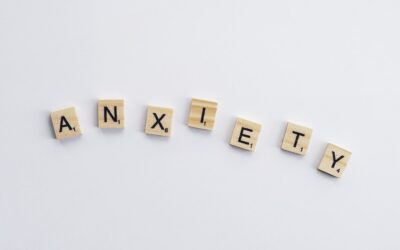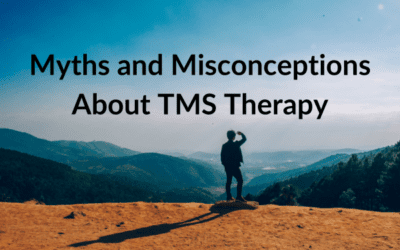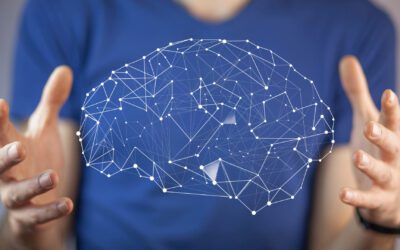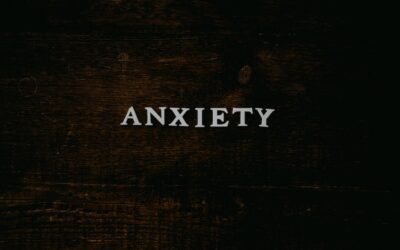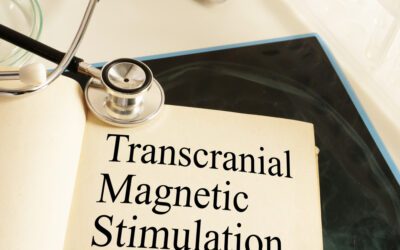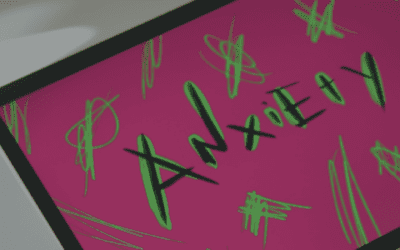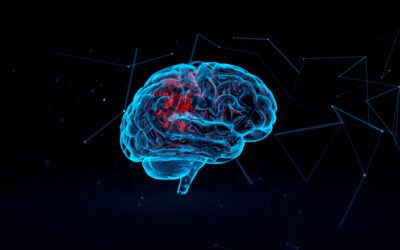What is TMS and how does it work?

What is TMS?
Transcranial magnetic stimulation (TMS) is a revolutionary, FDA approved treatment recognized by the American Psychiatric Association as an effective method in addressing symptoms of severe or treatment resistant depression. TMS can offer a much needed beacon of hope to individuals that have otherwise been unsuccessful in treating their depression symptoms with antidepressant medications. While TMS is primarily used to treat individuals with depression, it’s also gaining notoriety as a promising treatment against other chronic disorders such as anxiety, OCD, PTSD, and more.
Treatment resistant depression
Living with depression can be a frustrating struggle that permeates through all aspects of your life. While many individuals struggling with depression are able to find relief through a combination of antidepressants and cognitive behavioral therapy, these methods are typically only successful in approximately 60% of cases. The remaining 40% find little symptom relief from antidepressants or find that the corresponding side effects aren’t worth the relief these medications provide.
Outline of procedure
TMS is a non-invasive, stress free procedure that can be performed in the comfort of your practitioners office in sessions lasting under 40 minutes. During each session, a magnetic coil is placed over your scalp, sending targeted magnetic pulses to areas of the brain associated with mood regulation. These magnetic pulses work to restore the natural function of the brain’s neurotransmitters including dopamine, norepinephrine, and serotonin– which in turn alleviates symptoms of chronic depression and improves the patient’s overall mood. TMS sessions require zero downtime and patients are free to resume their normal daily activities immediately following every session.
Treatment plan
In order to maximize the efficacy of TMS therapy, patients will be expected to repeat treatment daily, or five times per week for up to six weeks. You should expect a personalized treatment plan that takes the severity of your symptoms into consideration and anticipate that your treatment plan may evolve as your response to TMS is assessed. Some patients see a marked improvement in their symptoms after just a few sessions, but recent studies show that the majority of patients start feeling relief from symptoms of depression after approximately four weeks of treatment.
Holiday Blues: Understanding and Managing Seasonal Depression
The holiday season doesn’t have to feel overwhelming or isolating. If you or someone you love is struggling with depression, we’re here to help...
Breaking the Stigma: Addressing Men’s Mental Health Challenges
Men’s Mental Health Awareness Month is a crucial reminder that mental health is just as important as physical health.
...Mental Health: When is the Right Time to Seek Help?
It’s important to distinguish between everyday stress and conditions that call for medical treatment.
...Seven Lesser-Known Signs of Anxiety
Anxiety is a common mental health condition that affects millions of people worldwide. While many people are familiar with some of the more well-kn...
Myths and Misconceptions About TMS Therapy
Misconceptions surrounding transcranial magnetic stimulation (TMS) have unfortunately dissuaded patients from considering it as a potential treatme...
Tips For Finding A Qualified TMS Technician
Recommendations from Peers While searching for a TMS technician, seeking referrals and recommendations from trusted sources can truly be invaluable...
The Role of Mindfulness in Managing Anxiety: Tips for Incorporating Mindfulness into Your Daily Routine
In today’s fast-paced world, anxiety has become an all too common experience for many people. It can leave you feeling overwhelmed and discon...
A Guide for 9 Ways to Cope With Anxiety
Anxiety nearly affects almost everybody at some point in life. It is our body’s automated response to a stressful situation—the symptoms of...
Finding Balance: Stress Awareness Month in April
Stress is a natural part of life, but it doesn’t have to control you. This April, let’s focus on managing stress and creating a sense of peace ...
How to Maximize the Results of TMS Therapy
Learn the key strategies to enhance the effectiveness of TMS therapy and ensure a successful therapeutic experience.
...What Is Treatment Resistant Depression and How Can TMS Help?
By harnessing the power of neurostimulation and promoting neuroplastic changes, TMS opens a new chapter in the quest for effective solutions for TR...
Healthy Resolutions For Your Mental Health in the New Year
As we bid farewell to the old and embrace the new, the start of a fresh year often marks a time for reflection and renewal. While traditional resol...
7 Ways TMS Therapy Can Help
Depression is a treatable condition, but standard therapies are ineffective for some forms of the illness. TMS (transcranial magnetic therapy) is o...
TMS Treatment as an Alternative to Antidepressant Medication
TMS is a non-invasive treatment that uses magnetic fields to stimulate the brain, and it has been shown to be effective in treating a variety of me...
Can TMS Help Seasonal Affective Disorder?
Multiple studies have demonstrated that TMS, or Transcranial Magnetic Stimulation, is not only effective but also has long-lasting benefits.
...How to Advocate for Yourself as a Person with Anxiety
By taking an active role in your own well-being, you can make a significant impact on your journey towards healing.
...The Science Behind TMS And Anxiety
What is Anxiety? Anxiety and trauma-related disorders encompass various conditions that involve difficulties in processing fear and subsequent beha...
What Is The Future Of TMS Therapy?
The remarkable advancements in deep brain stimulation techniques have brought about significant breakthroughs in the treatment of major depressive...
Uncovering the Causes of Mental Health Issues in America
National Mental Illness Facts & Statistics According to the National Alliance on Mental Illness, “1 in 5 U.S. adults experience mental illnes...
TMS Therapy – Understanding Its Role In Treating Anxiety and Depression
TMS (Transcranial Magnetic Stimulation) first appeared in the 1980s and has since been FDA-approved to treat mental health issues. This method has ...




